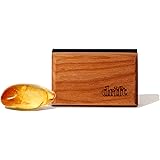Unlike a behavioral intervention, nasal sprays were effective in reducing days of illness among high-risk groups vulnerable to respiratory infections, a large randomized controlled trial found.
In primary care settings across the U.K., enrolled patients self-reported significantly fewer days of respiratory illness via 6-month questionnaire if they had been randomly assigned a saline spray (6.4 days, adjusted incidence rate ratio [IRR] 0.81, 99% CI 0.74-0.88) or a gel-based nasal spray (6.5 days, IRR 0.82, 99% CI 0.76-0.90) instead of usual care alone (8.2 days), reported Paul Little, MD, of the University of Southampton in England, and colleagues.
Furthermore, the number of lost work days among patients who were treated with either nasal spray was modestly lower in the open-label Immune Defence study.
“If widely advocated and implemented, these simple scalable interventions could potentially have an important impact on antimicrobial stewardship, and in reducing the impact of respiratory viruses for patients, the health service, and the wider economy,” Little’s group wrote in Lancet Respiratory Medicine.
Patients in the study — considered at high risk due to age, obesity, immune compromise, heart disease, asthma, or diabetes, for example — had been instructed to use the sprays at the first signs of illness, after potential exposure to infection, and after prolonged exposure or close contact with a sick person.
“Our advice to people is if possible, at the first sign of cough, sore throat, cold, or flu-like symptoms, use a nasal spray,” said Little, in a press release.
“Benefits were even greater when people used the sprays more often,” added coauthor Lucy Yardley, PhD, also of the University of Southampton. “We advised six times a day at the first sign of a cold — but many people in the study did not use the spray that often.”
Little’s group noted that the Immune Defence study was also the first trial to test a “pragmatic, scalable” behavioral intervention to aid in the prevention and treatment of respiratory illnesses: a website that promoted physical activity and stress management. Study participants randomly assigned to that behavioral intervention experienced no fewer sick days within 6 months compared with usual care (7.4 days, IRR 0.97, 99% CI 0.89-1.06).
However, all three interventions tested in the study resulted in significantly reduced antibiotic use versus usual care (ranging from a relative 26% reduction with the behavioral intervention to 35% with the gel-based spray) and in fewer days with moderately bad symptoms.
“Respiratory tract infections are the largest cause of unnecessary consumption of antibiotics driving antimicrobial resistance, in the community,” noted Evangelos Giamarellos-Bourboulis, MD, PhD, of the National and Kapodistrian University of Athens in Greece, in an invited commentary.
“To tackle the issue of antimicrobial resistance, the amount of antibiotics prescribed will need to be reduced. Little and colleagues show how such reductions could be achieved through simple measures, and they should be congratulated for their effort,” Giamarellos-Bourboulis wrote.
The trial “highlights the need for simple approaches and suggests that symptomatic or proactive treatment with nasal sprays and proper patient education are fundamental,” he noted. “When patients do not have access to web-education, education relies on healthcare professionals to reassure and explain that symptoms will often resolve without intervention and return to work might be possible sooner with the use of these simple interventions.”
Nasal sprays are believed to reduce the length of respiratory infections by modifying the nasal environment to inactivate a range of respiratory viruses. The older studies favoring this intervention had been plagued by issues such as side effects and small sample sizes.
The Immune Defence trial had participants recruited from 332 general practices throughout three winter seasons in the U.K. — the first beginning on Dec. 1, 2020, then the next two seasons starting their recruitment in September of each subsequent year.
In order to be included, participants needed to be adults with a minimum of one comorbidity or risk factor for adverse outcomes as the result of a respiratory infection, or had experienced three or more respiratory tract infections during the course of a normal year.
Participants were assigned in a 1:1:1:1 ratio to receive either one of the nasal sprays, behavioral intervention via a website, or usual care (i.e., advice about illness management). Use of over-the-counter nasal sprays was prohibited in all groups.
Partial masking was utilized such that investigators, medical staff, and those who conducted statistical analyses were not aware of treatment assignments, while participants were not aware of the precise nature of their assigned nasal sprays.
Investigators ultimately had 13,799 people randomized to the four study arms. Patient demographics were similar between the various treatment groups, with 53-55% of each arm being female and the average patient age 61-62 years. Over 95% of patients across all treatment groups were white.
Participants filled out surveys at 6 months to self-report any respiratory tract illnesses such as coughs, colds, sore throat, sinus or ear infections, influenza, or COVID-19. Among those who reported an illness, the number of sick days averaged 15.1 days in usual care patients, 12 days with the Vicks First Defence gel-based spray, 11.8 days with saline spray, and 14.2 days in the behavioral website group.
The most common adverse events observed were headaches or sinus pain, observed in 4.8% of the usual care group, a significantly higher 7.8% of the gel-based nasal spray group (RR 1.61, 95% CI 1.30-1.99), 4.5% of the saline group, and 4.5% of the behavioral intervention group.
A total of 429 patients withdrew from the trial, citing reasons such as being unable to engage with the intervention, being too unwell or experiencing a change in medical condition, personal circumstances, and that they did not contract a respiratory infection.
Giamarellos-Bourboulis highlighted several key limitations to Immune Defence. The design of the trial did not include the strict recording of the duration of symptoms, and information on the exact microbiology affecting sick patients was not available. Additionally, gut flora were not assessed, and the effect of the decrease in antibiotic courses on gut flora colonization via multidrug-resistant microorganisms was not examined.
Moreover, study exclusion criteria had removed participants that had a terminal illness, were receiving palliative care, had dementia or pituitary adenoma, were pregnant or breastfeeding, were currently in residential care, or used nasal sprays regularly for illness prevention.
![author['full_name']](https://clf1.medpagetoday.com/media/images/author/EShort_188.jpg)
Elizabeth Short is a staff writer for MedPage Today. She often covers pulmonology and allergy & immunology. Follow
Disclosures
This study was supported by funding from the National Institute for Health and Care Research.
Little, Yardley, and study coauthors declared no conflicts of interest.
Giamarellos-Bourboulis reported various relationships with Abbott Products Operations, bioMérieux, BRAHMS, GSK, InflaRx, Sobi, XBiotech, Johnson & Johnson, MSD, UCB, Swedish Orphan Biovitrum AB, and Horizon 2020 European Grants.
Primary Source
Lancet Respiratory Medicine
Source Reference: Little P, et al “Nasal sprays and behavioural interventions compared with usual care for acute respiratory illness in primary care: a randomised, controlled, open-label, parallel-group trial” Lancet Respir Med 2024; DOI: 10.1016/S2213-2600(24)00140-1.
Secondary Source
Lancet Respiratory Medicine
Source Reference: Giamarellos-Bourboulis EJ “Treating acute respiratory illness: the need to be proactive” Lancet Respir Med 2024; DOI: 10.1016/S2213-2600(24)00168-1.
Note: This article have been indexed to our site. We do not claim legitimacy, ownership or copyright of any of the content above. To see the article at original source Click Here













